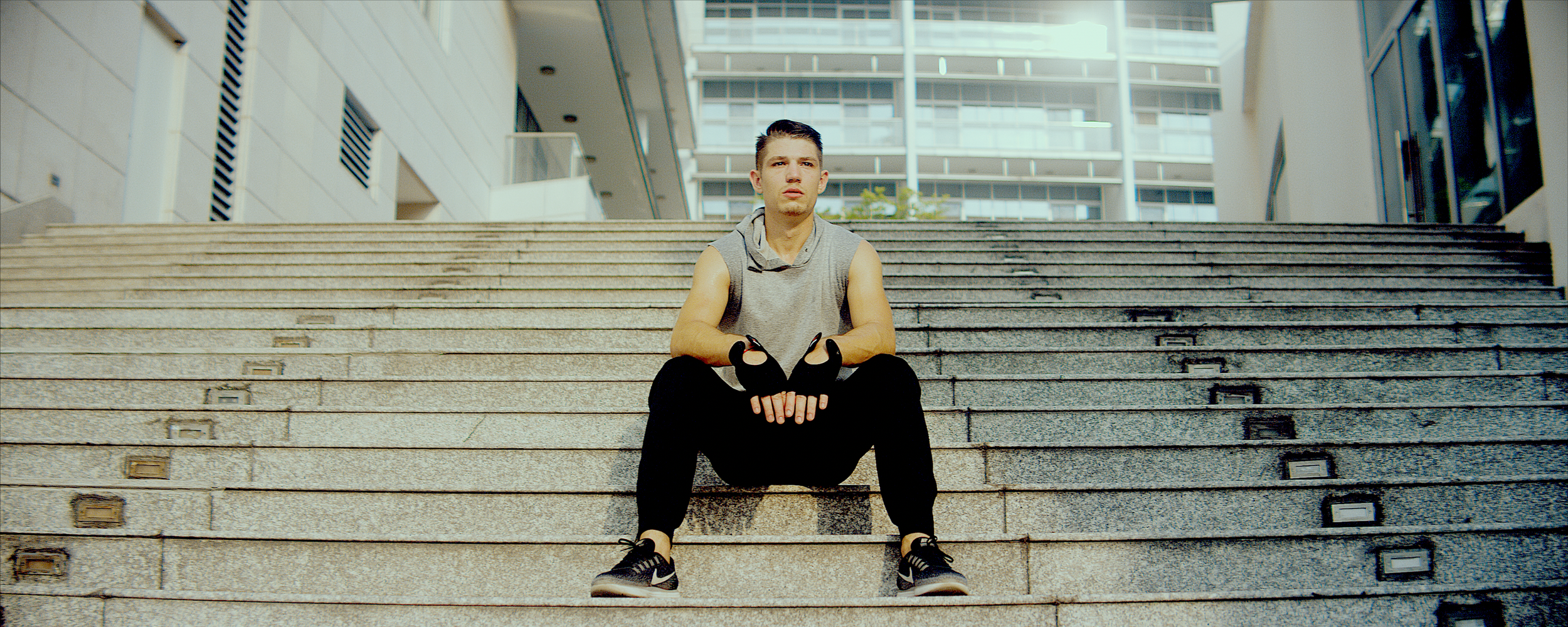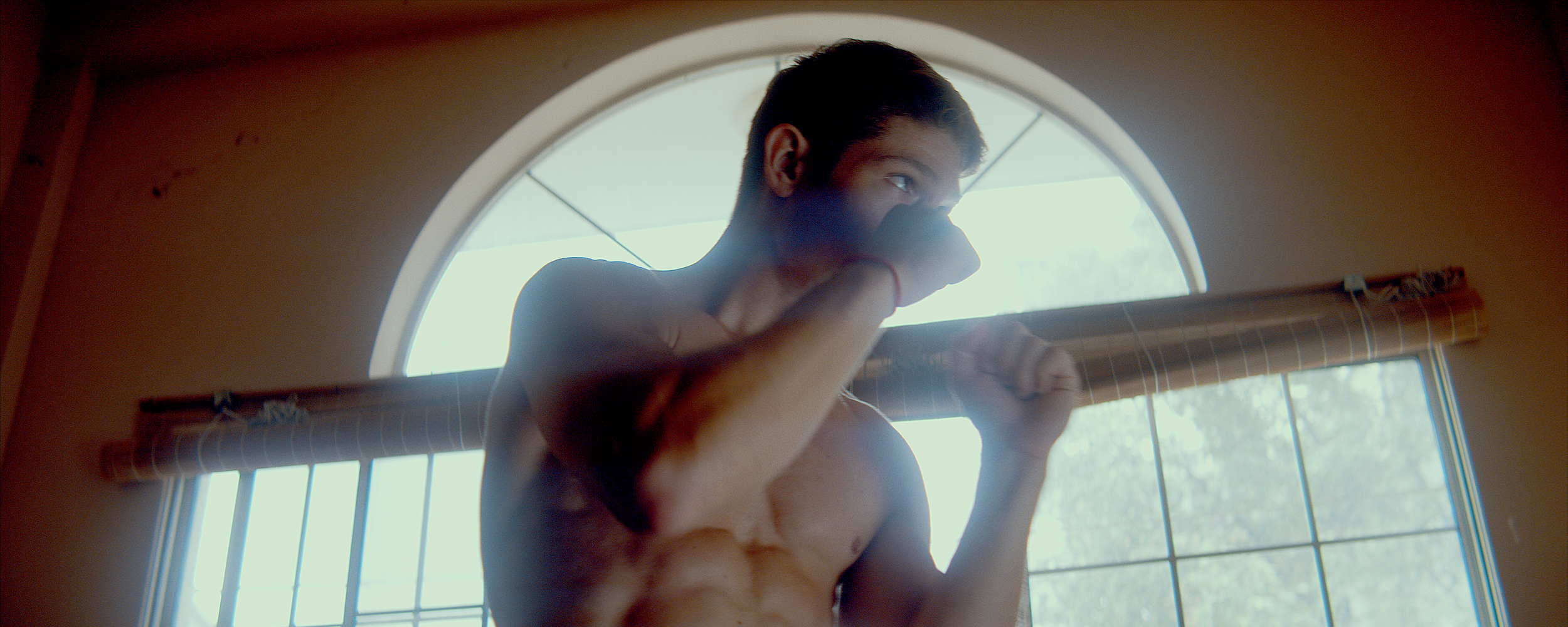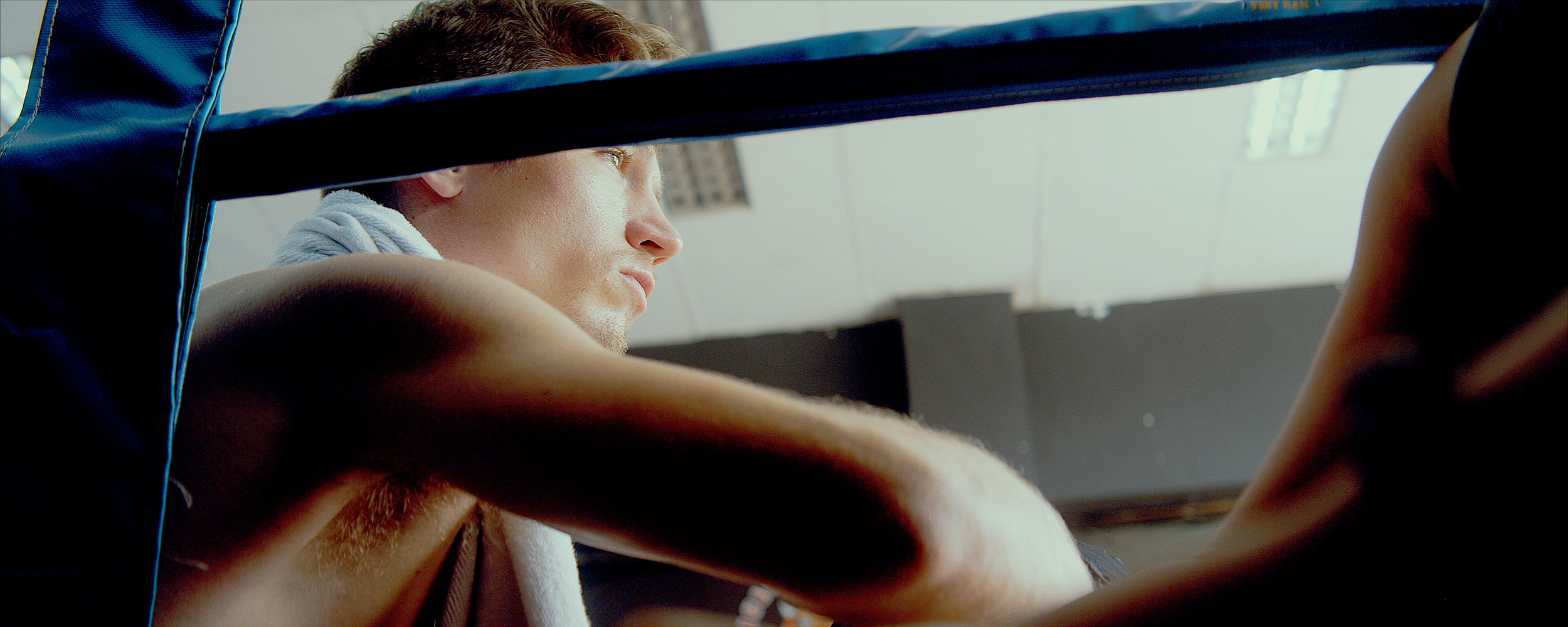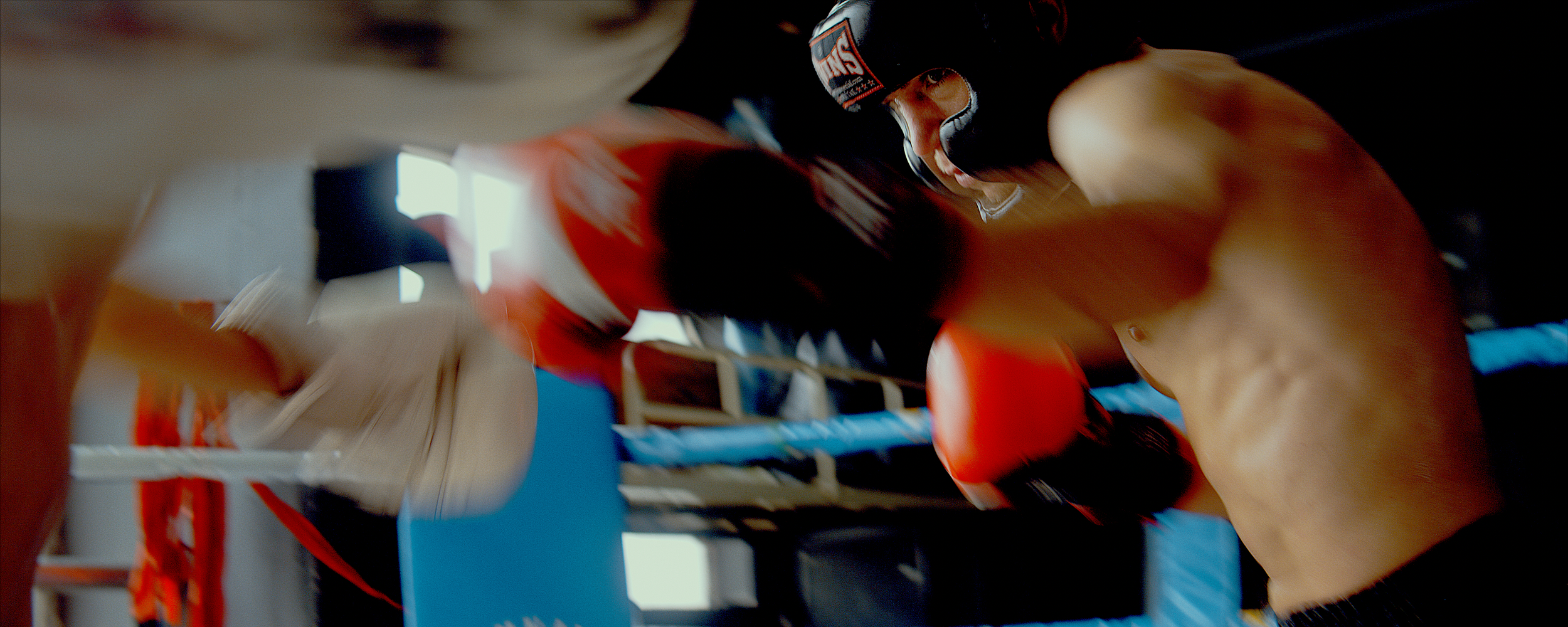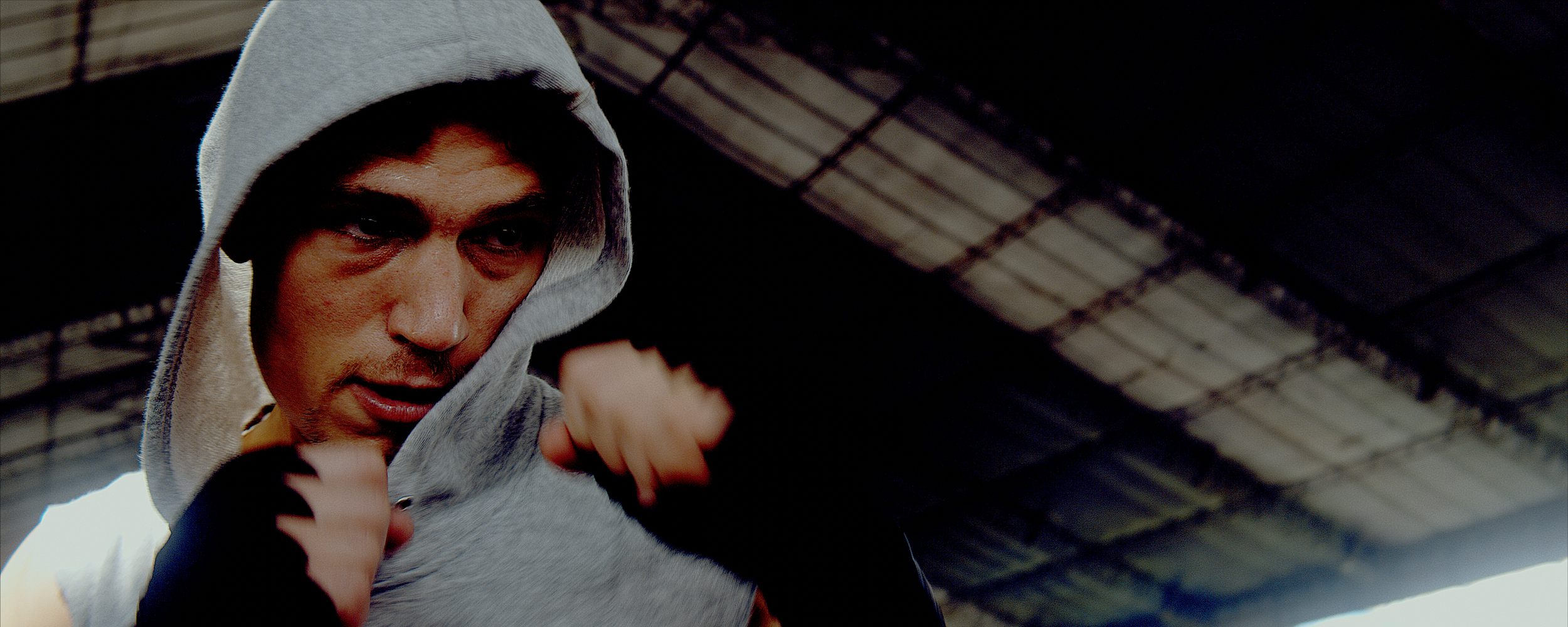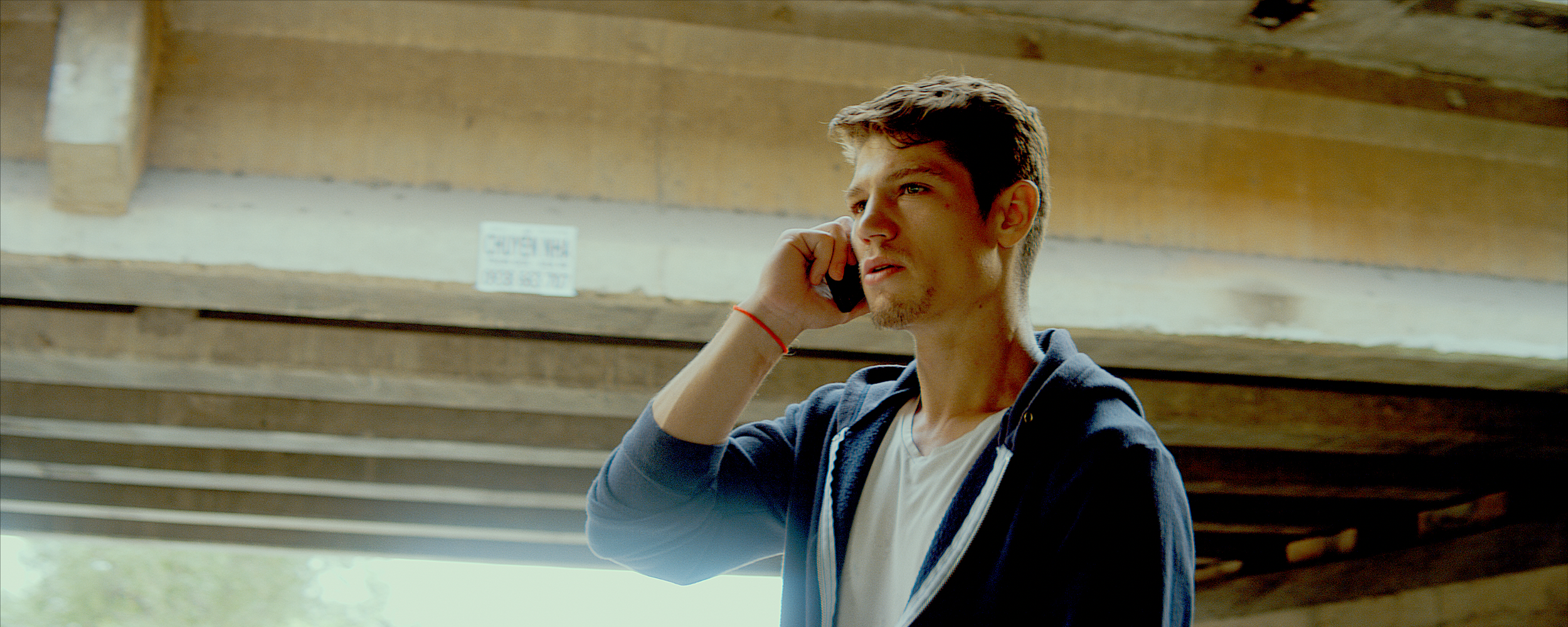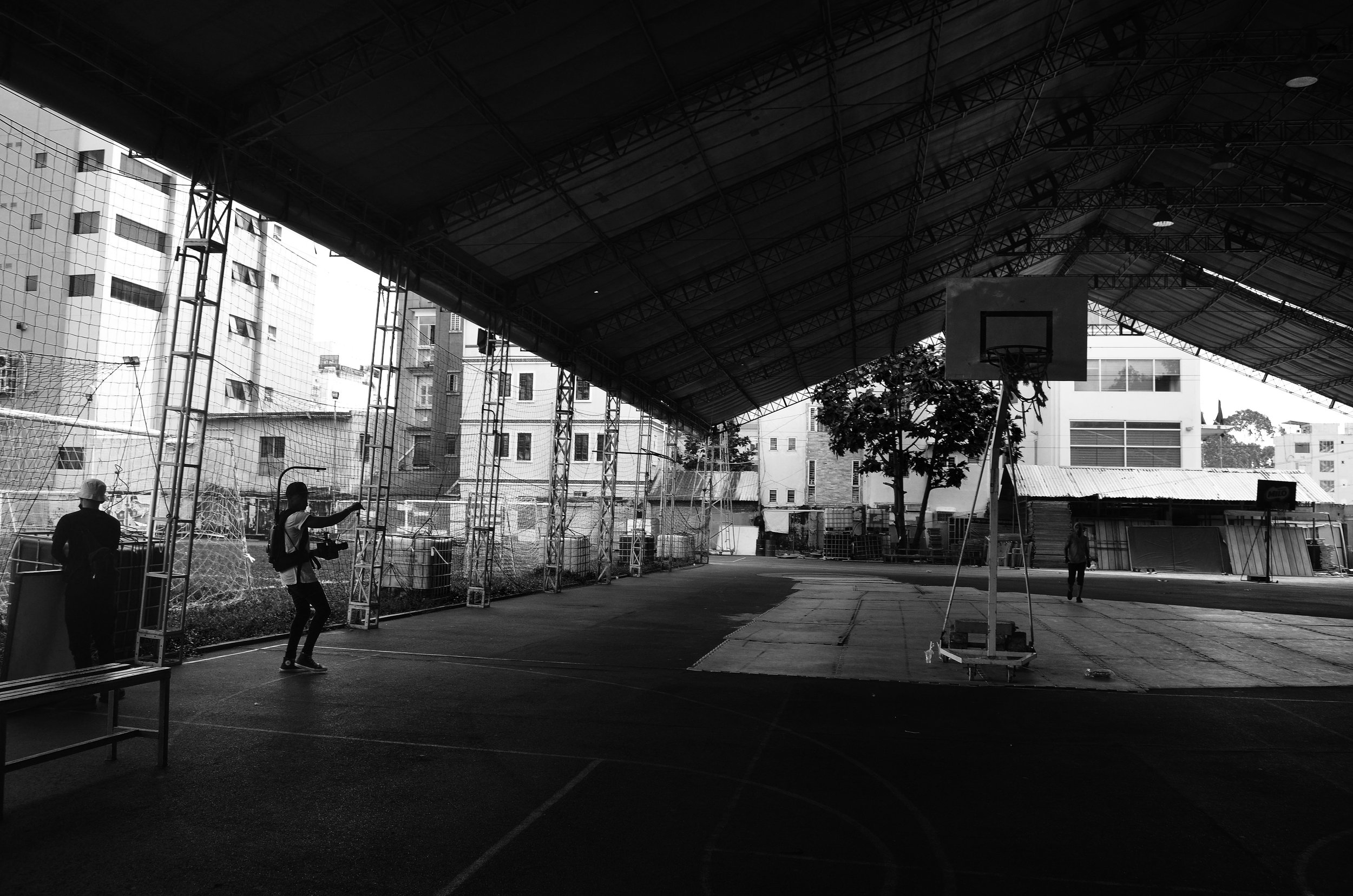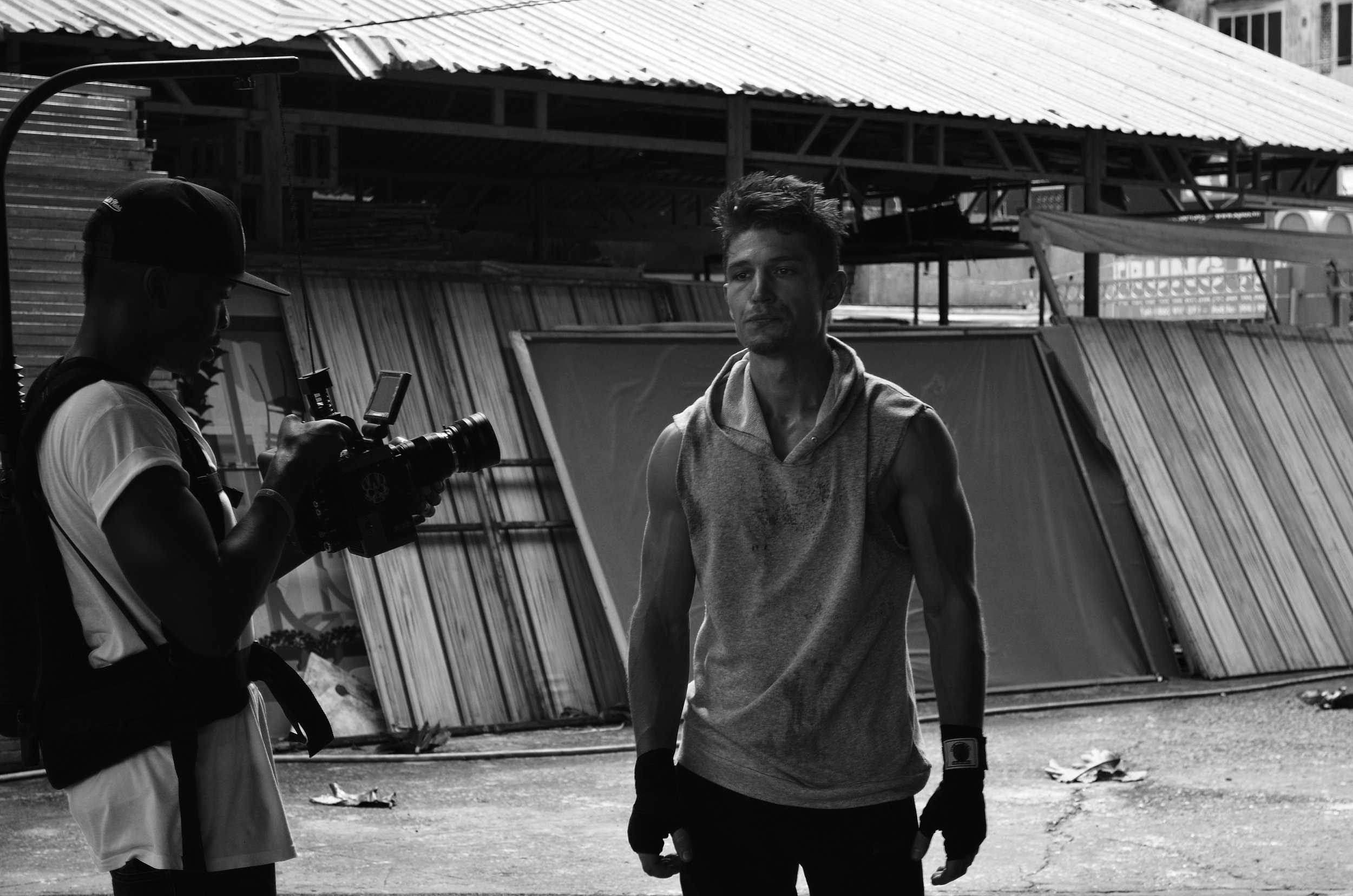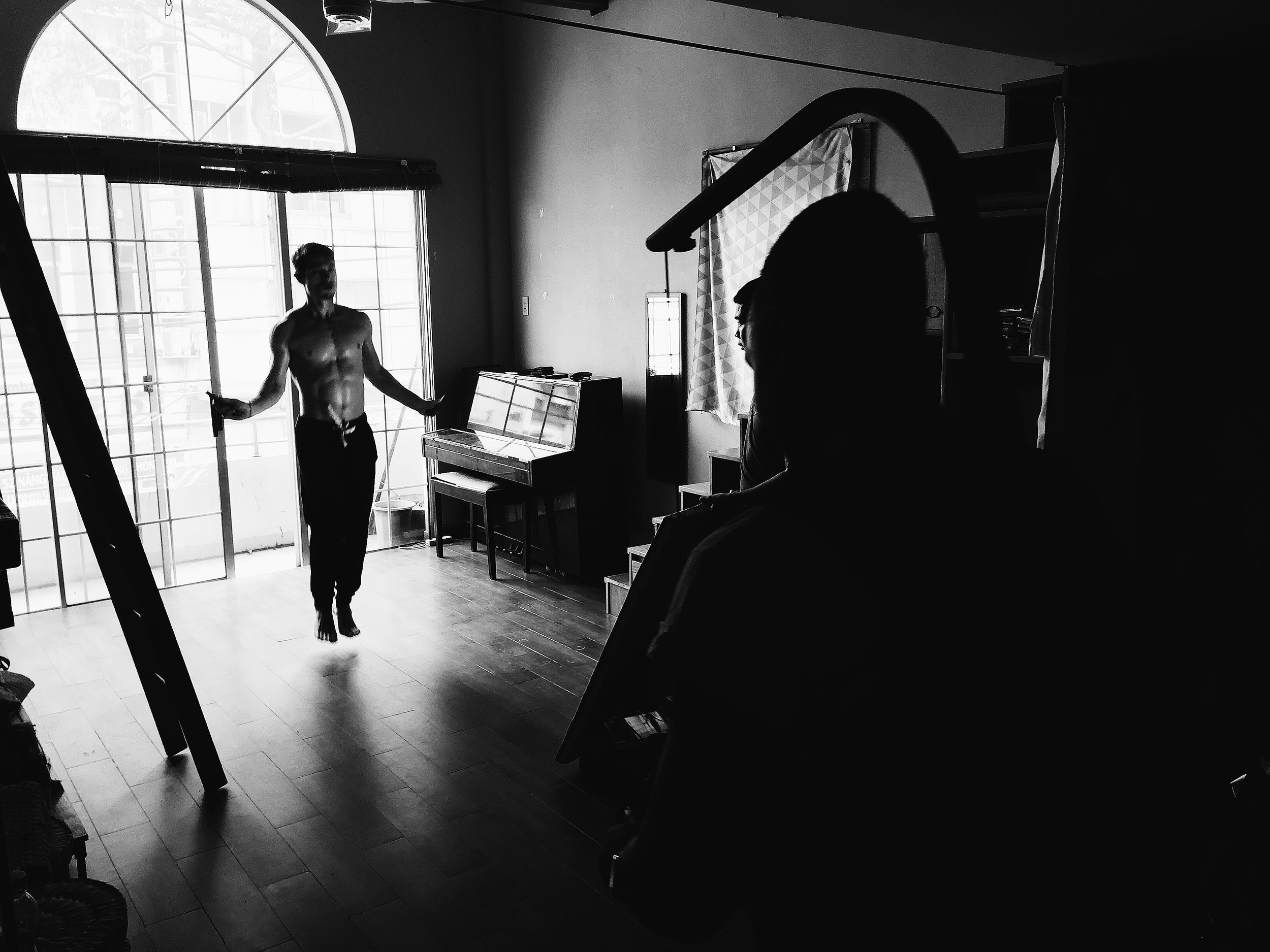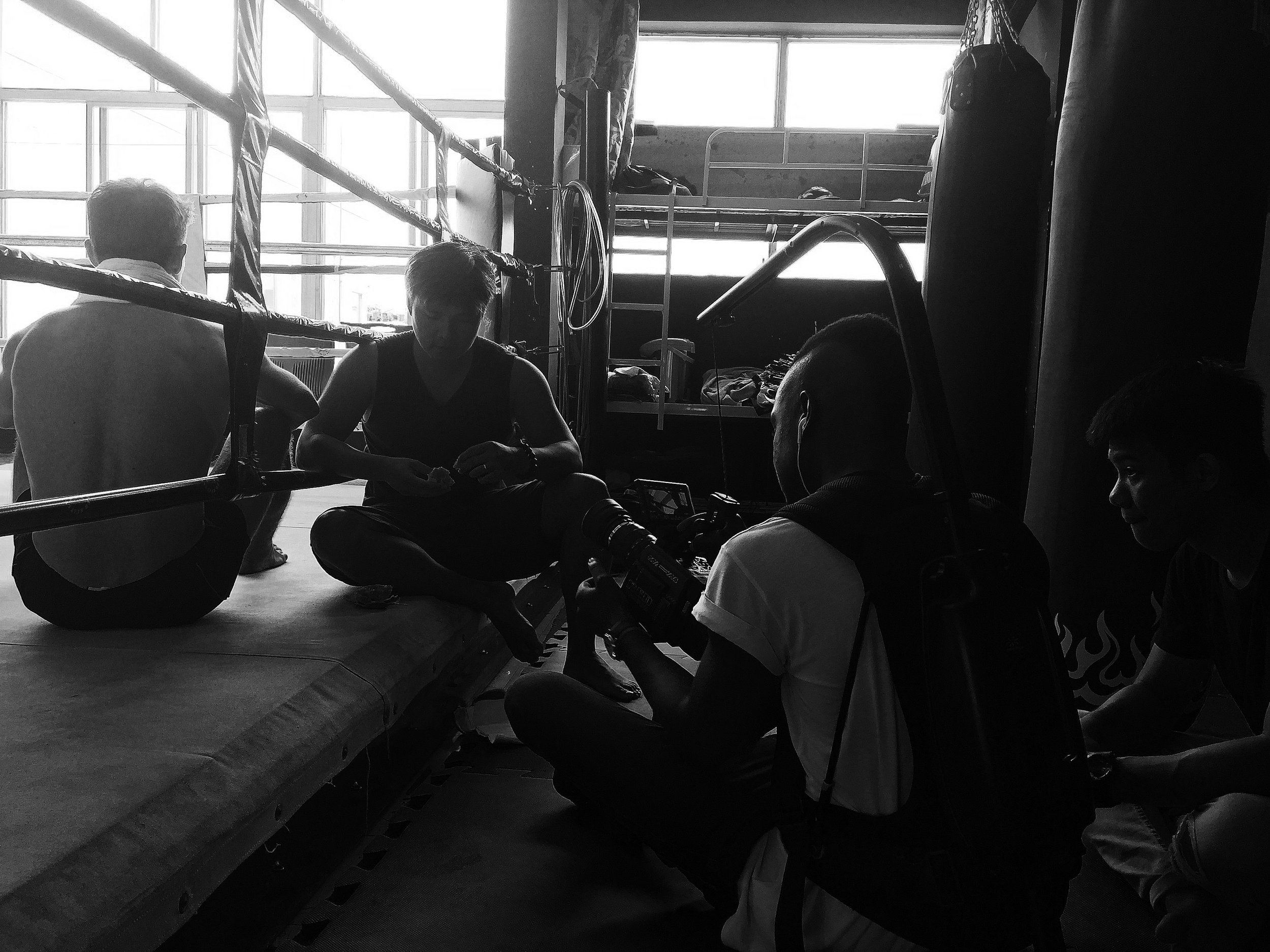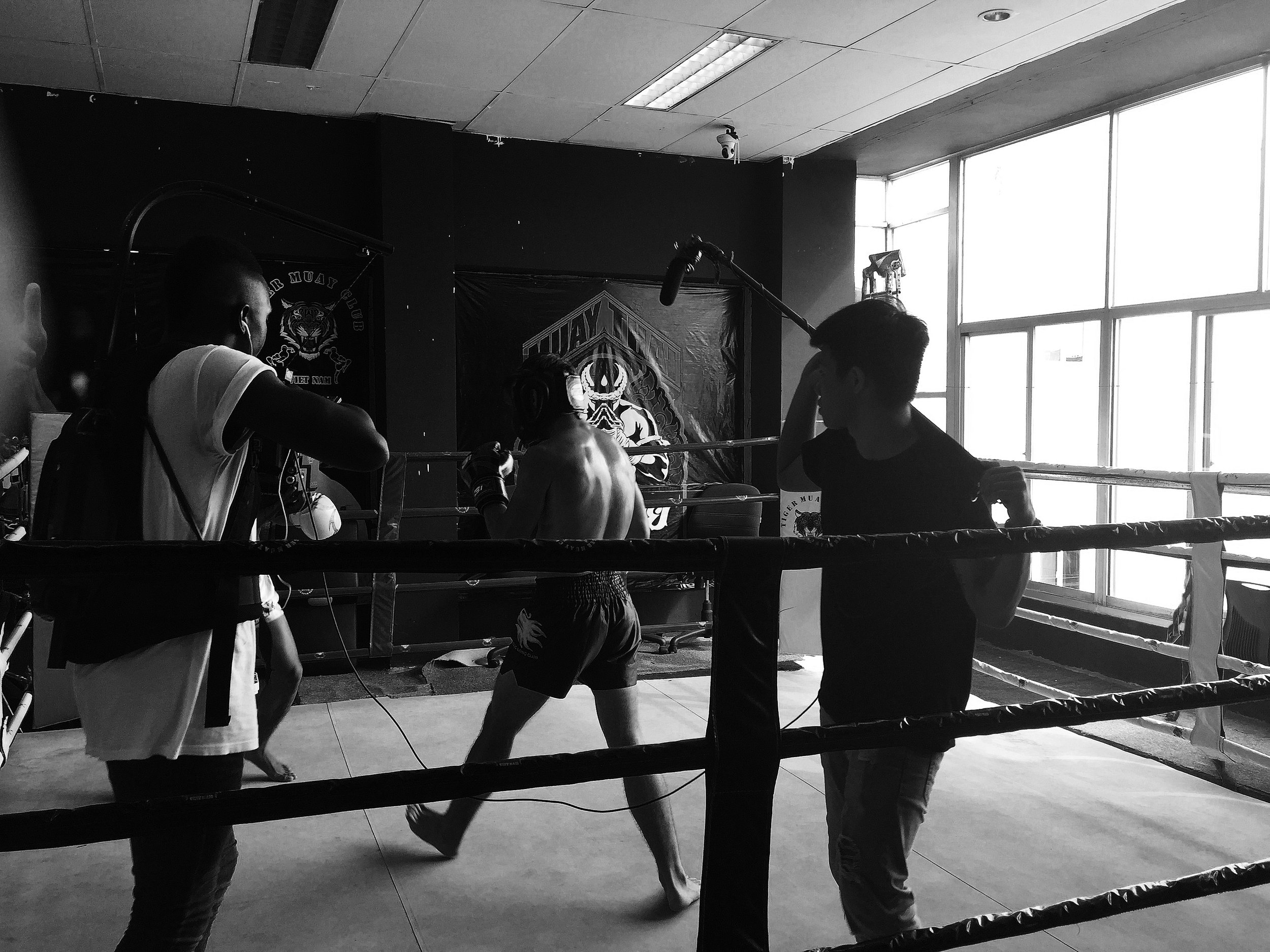Hummingbird
Exploring memories, regret and transformation
Directed by Dillon M. Banda
In this exclusive Q&A with Curation Hour, director Dillon M. Banda unveils the intricate layers of his acclaimed short film Hummingbird, delving into personal inspirations, the challenges of portraying Muay Thai fighting authentically, and the seamless integration of narrative and documentary elements. Banda's cross-continental upbringing and love for analogue photography bring a unique cultural sensitivity to his work. As Hummingbird gains recognition on the awards circuit, Banda reflects on the impact of accolades on his career and shares insights into his upcoming projects, including a new short documentary exploring black fatherhood and commercial ventures in Cape Town.
Inspirations often stem from personal experiences or observations. Could you share what inspired the storyline of Hummingbird and the significance of exploring themes such as memories, regret, and transformation within the narrative?
What’s funny is that it resonates much more with me now, years after I first wrote the film. During the time that I was finishing up post and then sending Hummingbird out to festivals last year, post-pandemic, my own life was on the verge of a huge transformation that I’m still kind of processing. I have moved to a new country and a new city since that time, and I’m now physically on a different continent from my girlfriend and partner, and missing her, missing our old life very much. I became very comfortable in that life and I think also very complacent, at times very careless. So yes, there’s a lot of regret there in terms of wishing I had made more of our time together and appreciated that time more while I was in it. It’s like you cross a bridge and then it collapses behind you, and you can still see across to the other side, but now it looks like a distant dream, and the only way is forward. The only option is to transform. It’s as if I somehow wrote Hummingbird with my own future in mind, at least thematically. It turned out to be prophetic, in a way.
The film delves into the world of illegal Muay Thai fighting. What kind of research was involved in portraying this aspect realistically and sensitively?
My lead, Carey, was already somewhat into Muay Thai at the time, and so it was a serendipitous jumping off point for us. He went deeper and deeper into it as we developed the film, and we both got to spend lots of time around people from that world - trainers, fighters, gym owners. As far as the ‘illegal’ side of it, I’d come across several people at that point, Westerners, who seemed to be almost hiding out or running away from something back in their home countries, and living these sort of clandestine lives in Asia.
I should mention that I have something of a gift where, for some reason people like to confess things to me even if they have only known me for a short time. Just totally spill their guts out. It’s a bit spooky, but I suppose it’s a good thing to have as a storyteller. Anyway, the whole ‘Westerners hiding out in Asia’ thing was a quirky phenomenon that I felt had been weirdly underexplored in popular culture for the most part, at least until a film called A Prayer Before Dawn in 2018, which is based on a true story about a Brit former drug dealer who has to fight his way out of a Thai prison. I kind of merged a lot of these real people that I had come across over the years into this one character, and placed him within the context of a world that both Carey and I had come to know quite well.
“The texture of the film is really something that I pulled from both dreams and nightmares that I’ve had.”
Hummingbird showcases a unique blend of both narrative and documentary elements. What challenges did this present during the filmmaking process, and how did you navigate these challenges to maintain a cohesive and engaging story?
It was really no challenge at all, and I think a large part of that is down to how deeply and willingly Carey immersed himself into the character. You could have truly turned the camera onto him at any point and that’s it, that’s the guy. I’m really grateful to him, and to all the cast involved for how much they threw themselves into it. They were always on, and that made the process feel easy and natural.
Your work as a director and cinematographer in Hummingbird, combined with IYO's sound design evoke a blend of nostalgia, fear and hope. How did you approach visual storytelling to create this emotional resonance?
Thank you for noticing that! The texture of the film is really something that I pulled from both dreams and nightmares that I’ve had, where the texture of the experience is tangible enough that it could be real, but there’s still also a touch of haziness there where, after you’ve woken up you’re like “well of course that was just a dream”. So with Hummingbird I tried to integrate that and make it feel like both a dream and a nightmare that Josh, the main character, is desperate to wake up from. I instinctually knew how to conjure that effect on a conceptual level with a touch of dream logic here and there, on a technical level with diffusion, shallow depth of field etc., and also by isolating the character as much as possible within the frame. Finally it was a very organic process to bring those visual elements together with the sound design and music to get the overall effect.
Your film has been recognised and nominated for several awards. How would you say that these accolades and recognitions impact your career?
Well, short films in general don’t tend to have a large audience, and so any bit of recognition or acknowledgement that calls attention to the film is both welcome and appreciated. Because most short films, at least the ones that aren’t branded - and even some that are - tend to be a labour of love for those involved, it’s a great way for everyone that contributed to feel appreciated and valued for their work. Beyond that, I think that the hope for us filmmakers is that the public recognition of one’s work can maybe elicit trust on some level, and make it easier to find support on future projects.
What's next for you?
As I briefly alluded to in the first question / answer, I moved to a new city, Cape Town, earlier this year after living in Asia for ten years. Before moving here I shot a campaign for the Intercontinental Hotels and Resorts that was released a few months ago, and for which I’m currently working on a director’s cut that’ll be ready and out soon. Besides that, I've spent the last few months developing a new short documentary about fatherhood, and specifically about black fatherhood. It will have some autobiographical elements in it for the first time in my work, and I’m excited to see how that evolves. And I’m very excited to get back into commercial and client work, to connect with the industry here in Cape Town and in South Africa in general, and to see what we can create together. There are a lot of great stories in this city, in this country and on this continent, and I’m excited to connect with the people that can help me - and that I can help - to tell them.
Starring Carey James and Hoan Van Nguyen
Written and Directed by Dillon M. Banda
Cinematography by Dillon M. Banda
Edited by Sean Cunningham
Sound Design by IYO
Music by Hotel Neon
Additional V.O. by Alexandra Drotz Ruhn
Production Assistance by Jenny Do, Elina Teboeva
Special Thanks to Rodnae Productions, Tiger Muay Thai Boxing Club, Hanoi Lens and Van Ngoc Dang
Produced by Dillon & Co

